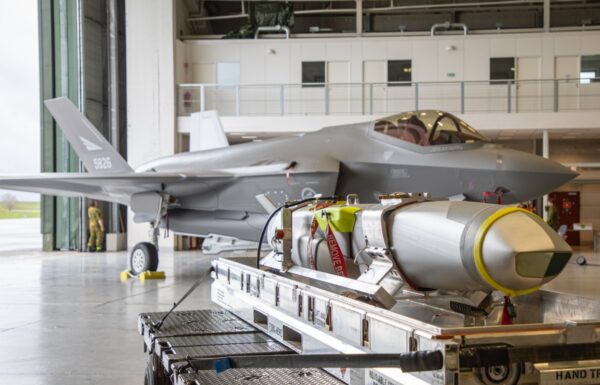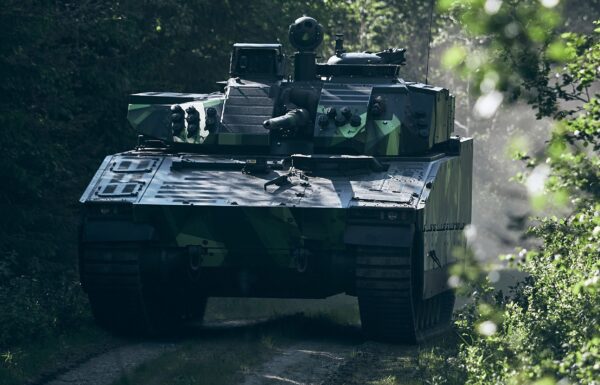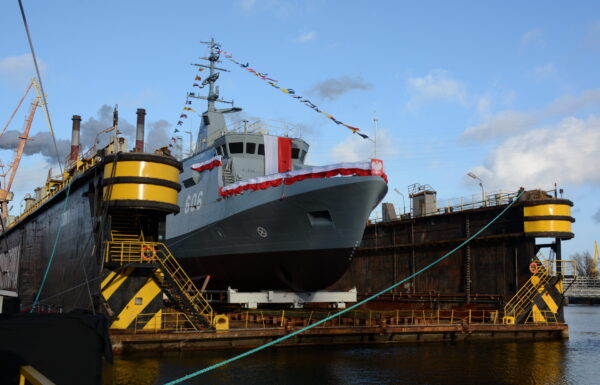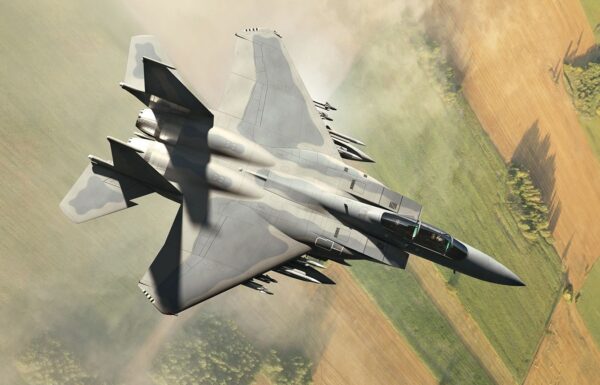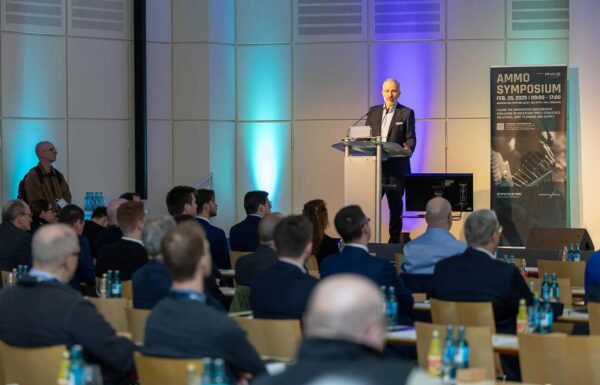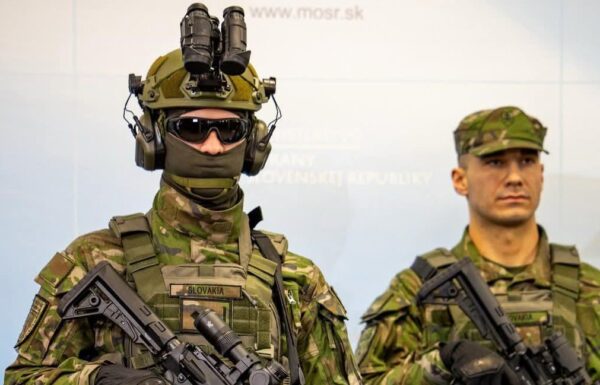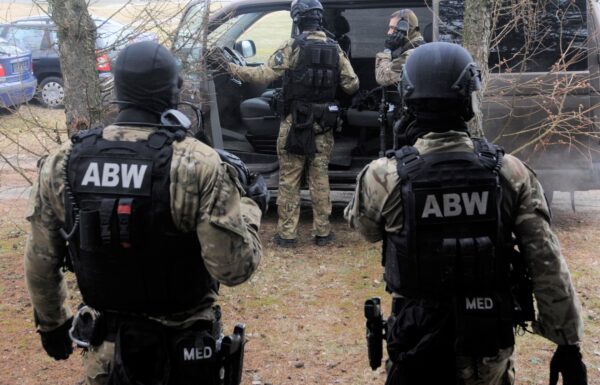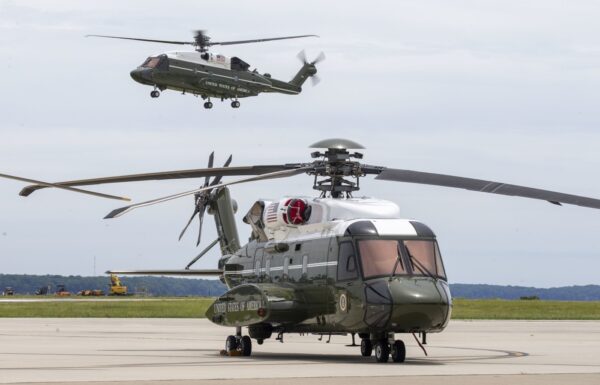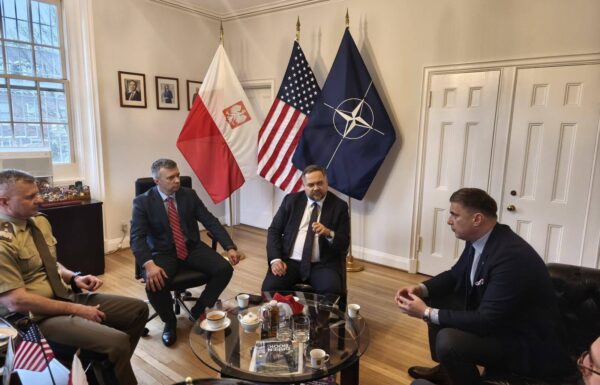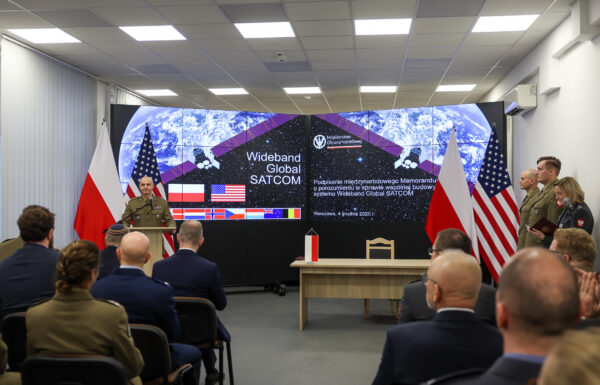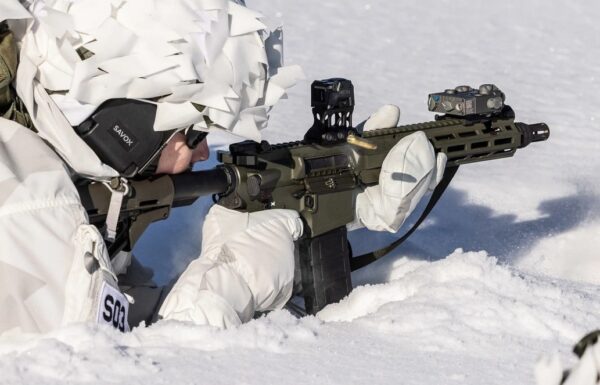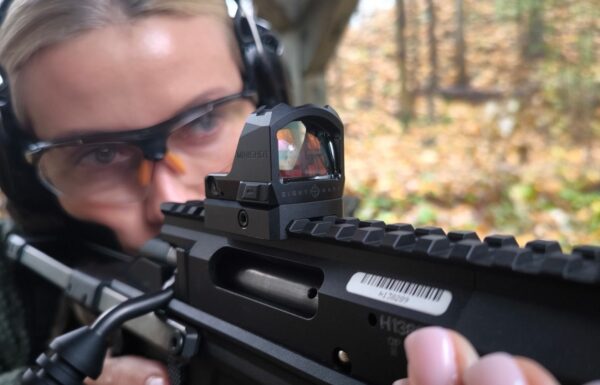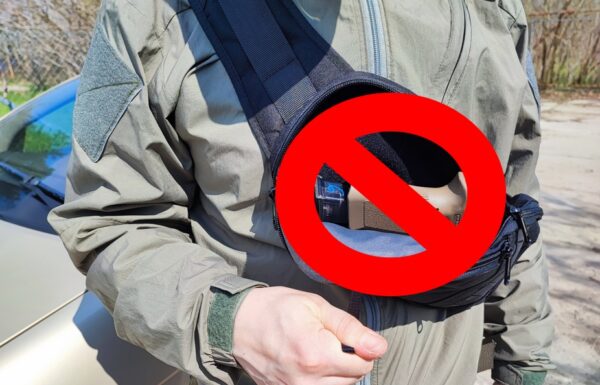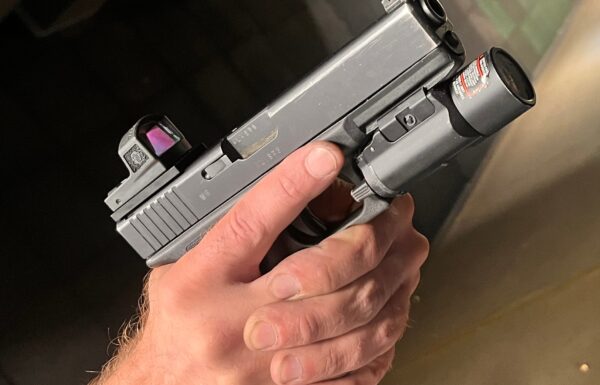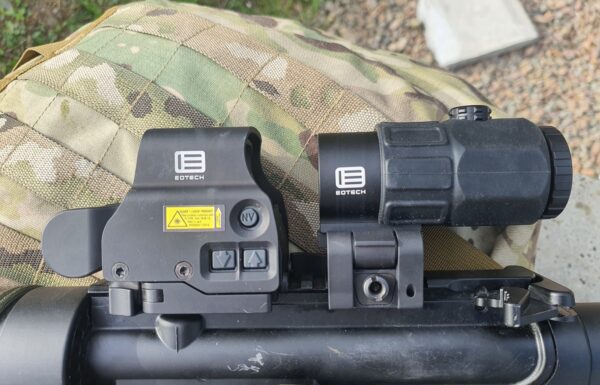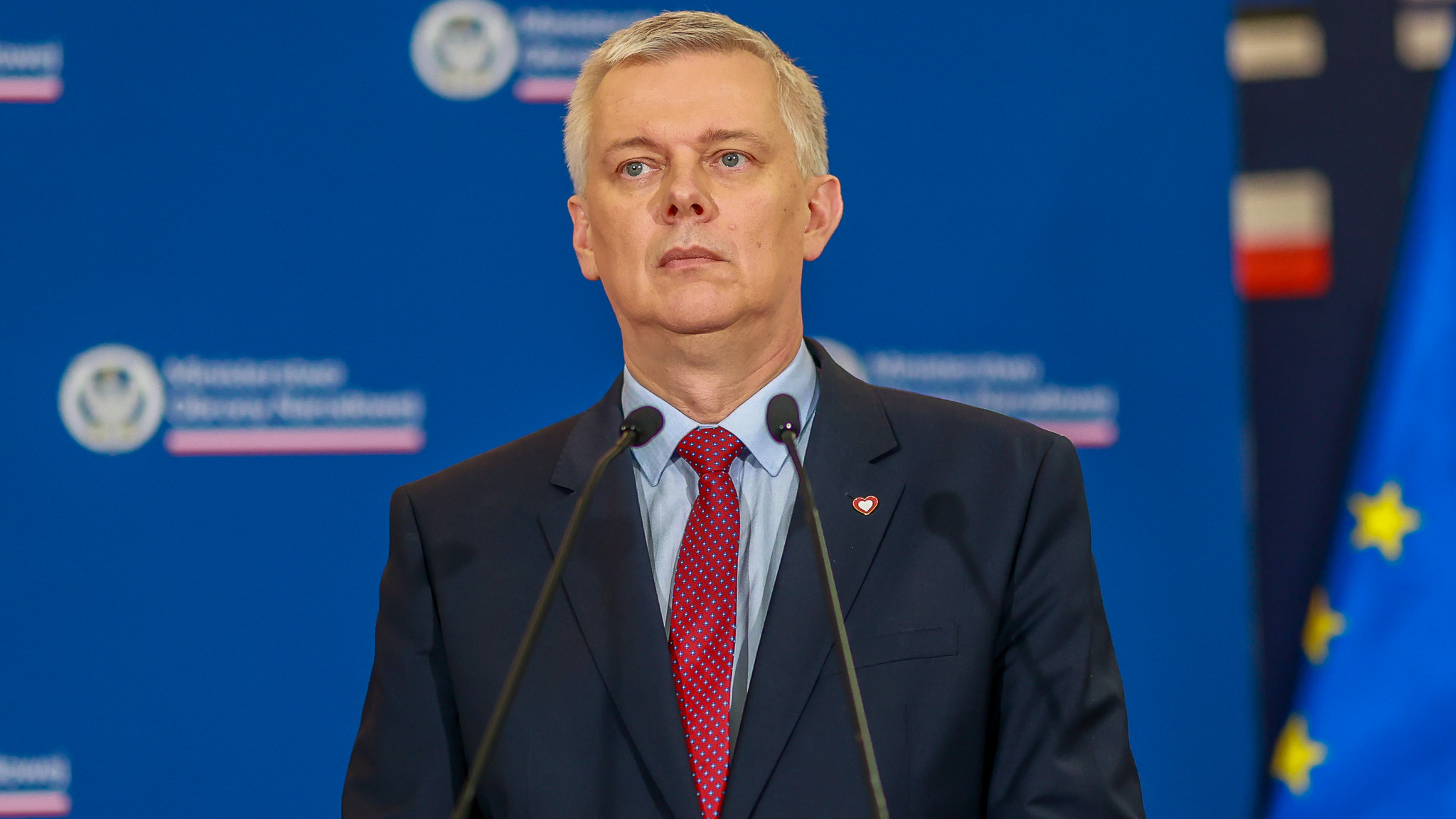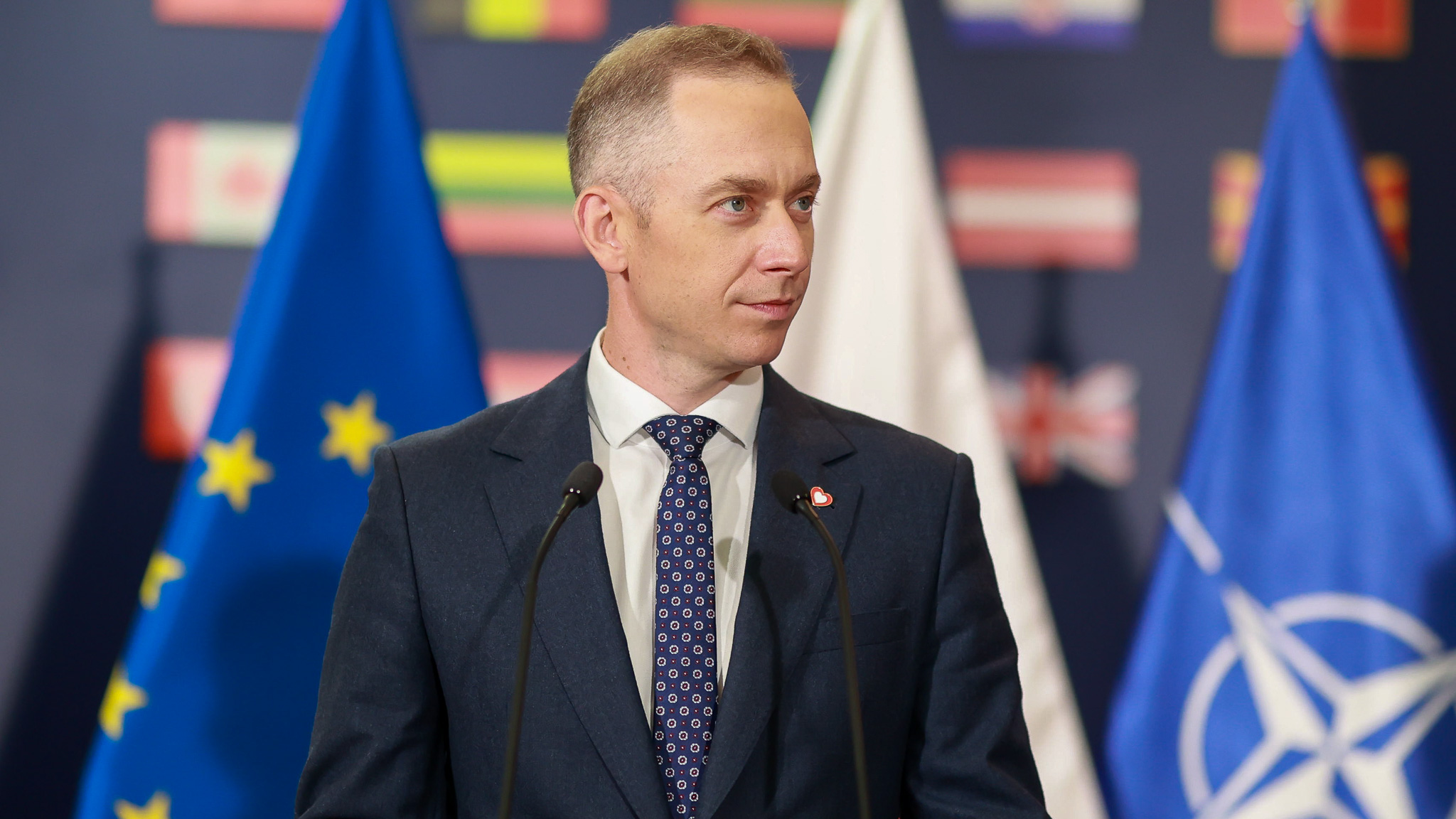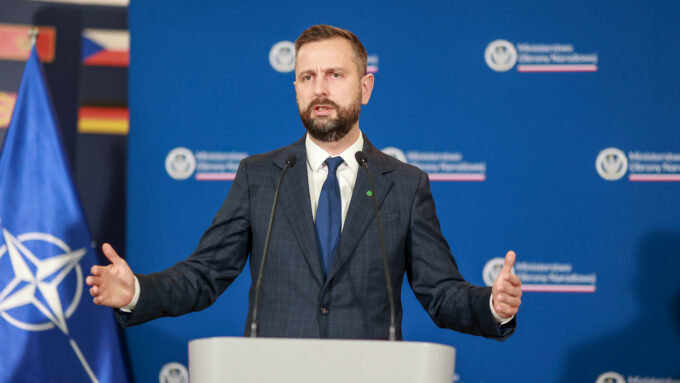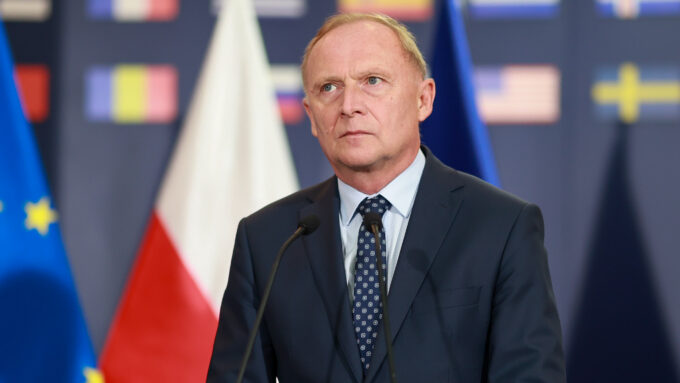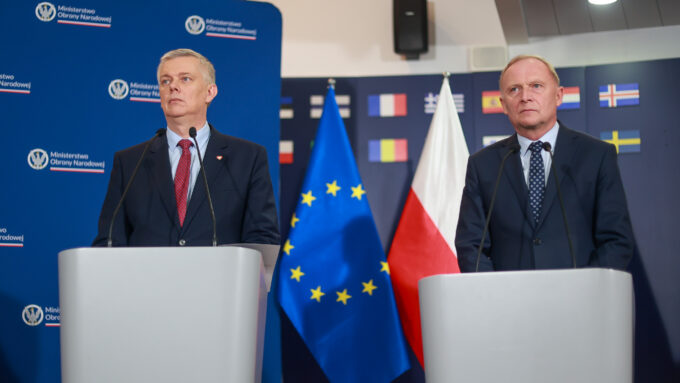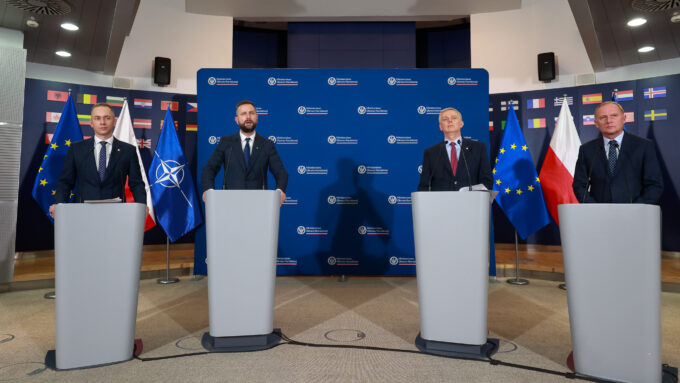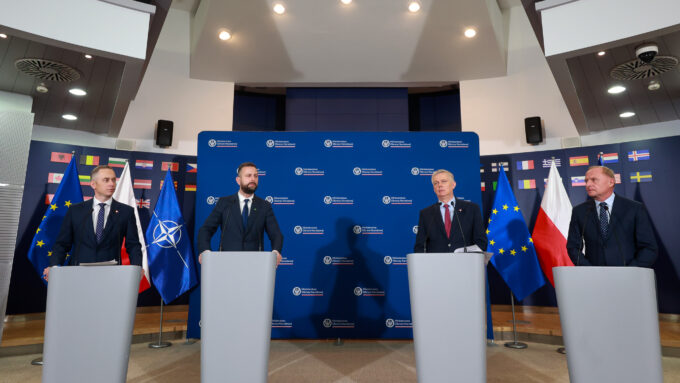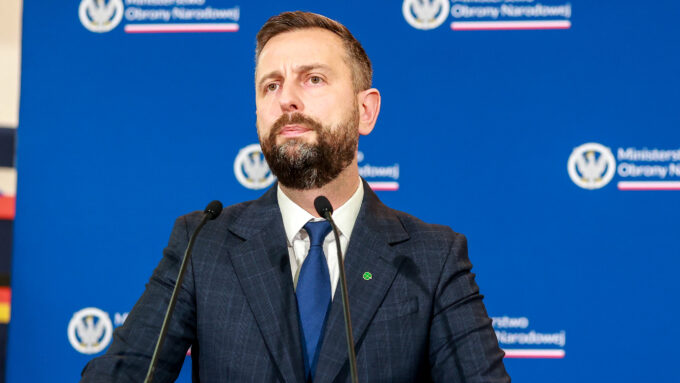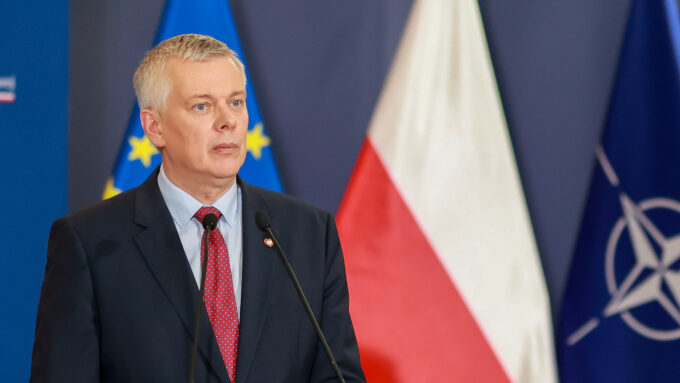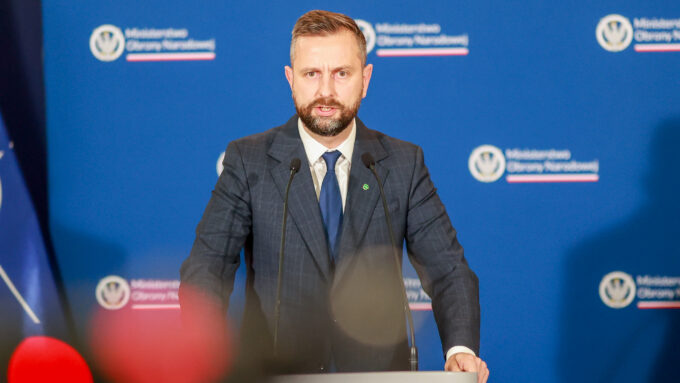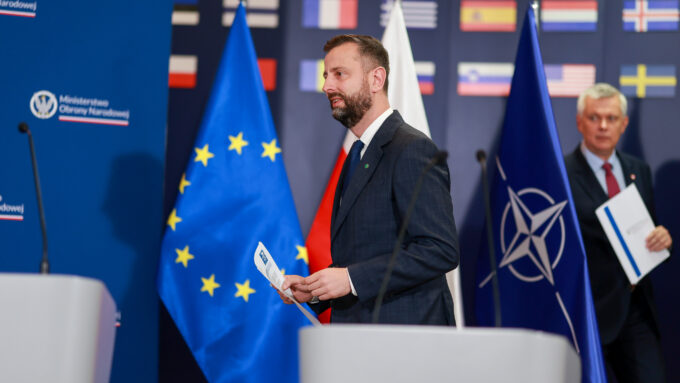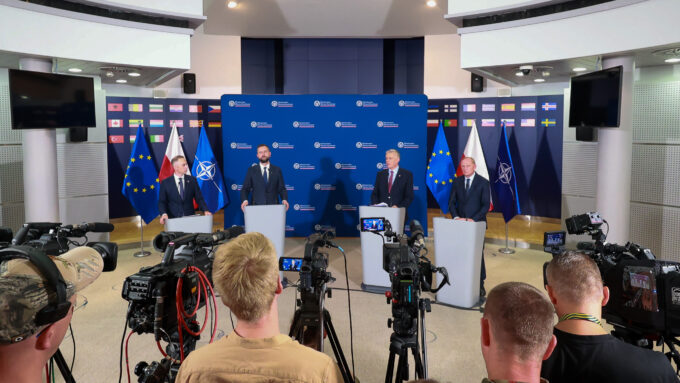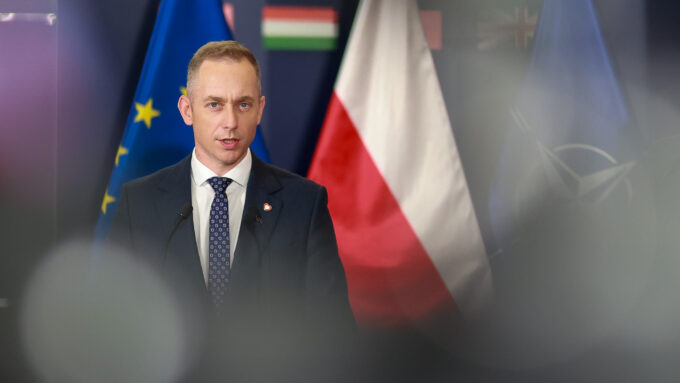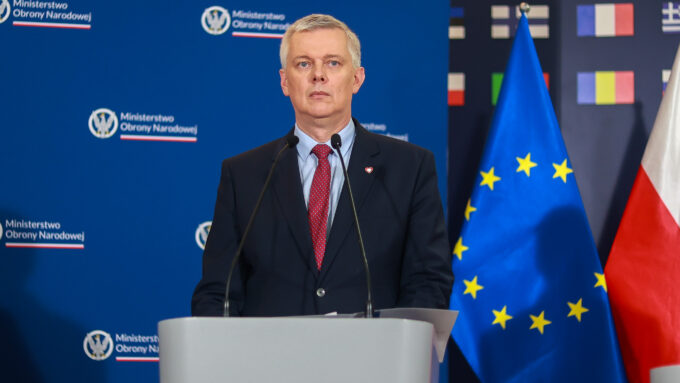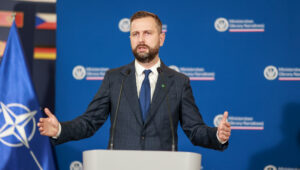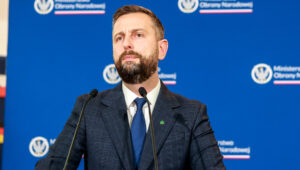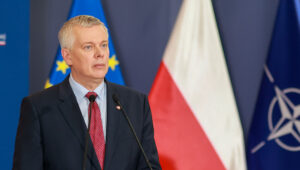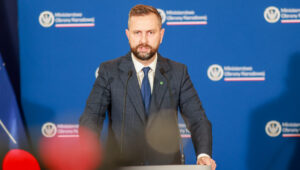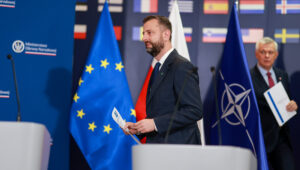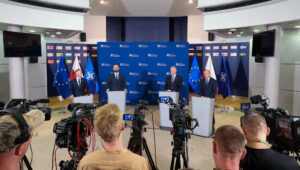On Wednesday, July 17, 2024, a joint press conference was held at the Polish Ministry of National Defense headquarters, featuring Deputy Prime Minister and Minister of National Defense Władysław Kosiniak-Kamysz, Minister of the Interior and Administration and Coordinator of Special Services Tomasz Siemoniak, Deputy Minister of National Defense Cezary Tomczyk, and Deputy Minister of the Interior and Administration Czesław Mroczek.
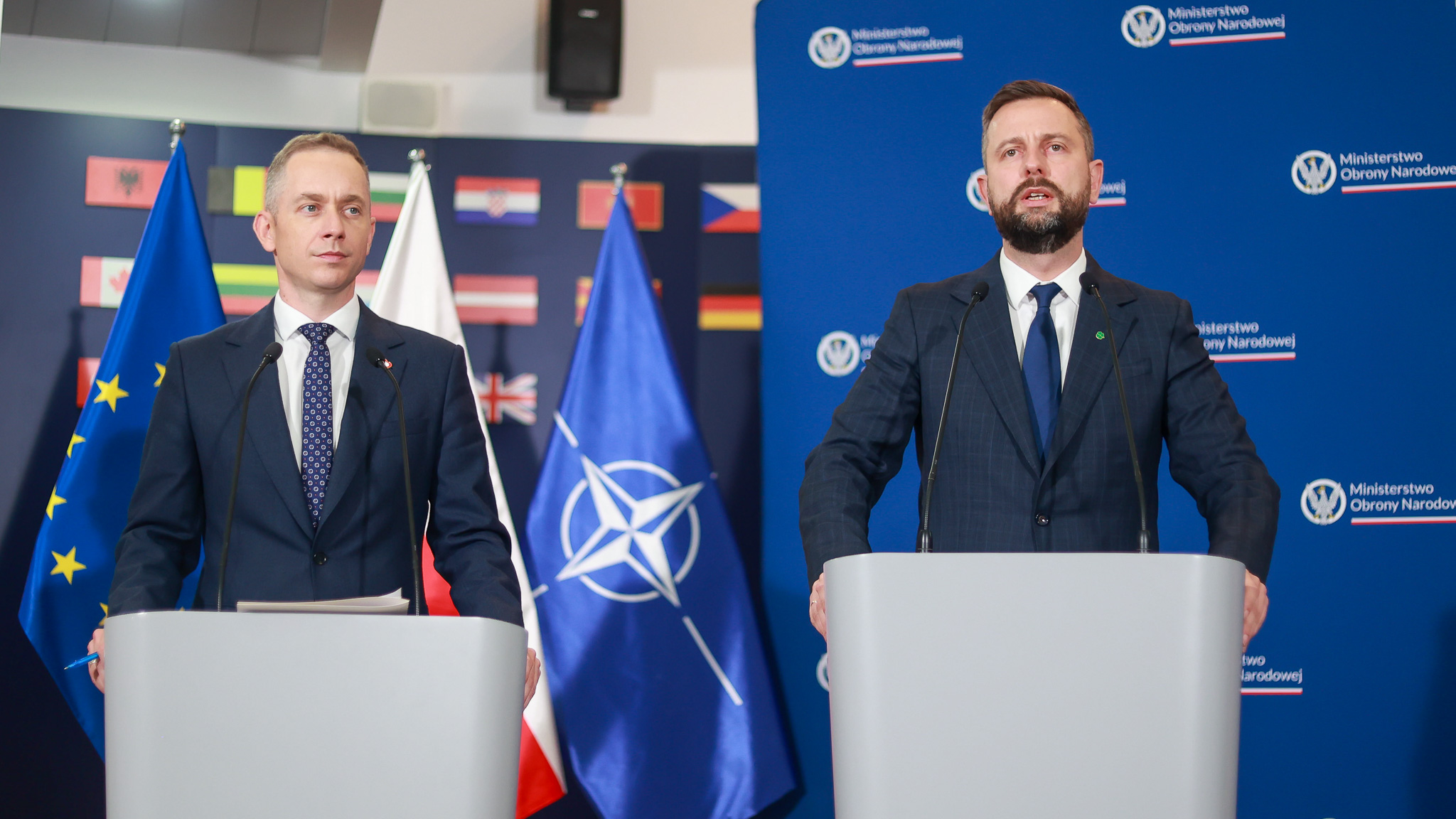 Photo: Krzysztof Niedziela/Ministry Of National Defense
Photo: Krzysztof Niedziela/Ministry Of National Defense
“Starting from August 1 of this year, a new mission will be launched. Two operations will be ended—one for training and one for border protection. A new operation, ‘Safe Podlasie,’ will be established, involving up to 17,000 soldiers. Currently, about 6,000 soldiers are stationed there. If needed, and upon requests from the Ministry of the Interior and Administration and the Border Guard, which is responsible for border protection, we will deploy additional forces and resources. We are also making changes to the organization of the initiative itself. Now, the 18th Mechanized Division will take responsibility for the operations at the border,” said Deputy Prime Minister Władysław Kosiniak-Kamysz.
“We are facing the largest hybrid war since the concept was introduced. (…) Poland has never experienced such an attack. It manifests in attempts to cross the border, in diversion, sabotage, and in cyberspace. The experiences of the past weeks and months have shown that even greater coordination of actions for border security is needed. In recent months, we have been equipping our forces with individual gear, as well as armored vehicles, transport vehicles, and medical vehicles, which ensure the safety of soldiers and officers. Deploying new operational military units, as well as soldiers from Special Forces and the Military Police for border patrols, is yielding results,” said the Minister of National Defense during the conference.
Polish Army soldiers have been supporting Border Guard officers in protecting the border since 2021, when the Belarusian side began hybrid attacks on the territory of the Republic of Poland. Soldiers of the Military Task Force (WZZ) Podlasie engage in a range of activities every day. On one hand, they counter attempts to illegally cross the border, and on the other hand, as part of their training activities, they prepare to safely and effectively perform their tasks in the event of a threat.
“We are learning from the shortcomings of our predecessors, particularly in the aspect of medical care. A request for funding for medical facilities has been submitted. I know that funds from Prime Minister Tusk’s reserve are being allocated, for example, to the hospital in Hajnówka. However, we have also decided, in cooperation with the Military Medical Institute and our medical services, to strengthen medical support from both the military side and the Polish Medical Air Rescue,” emphasized the Deputy Prime Minister.
The Minister of the Interior and Administration, who oversees the Border Guard and the Police, also addressed the situation at the border.
“We have seen a 50% decrease in attempts to illegally cross the border since the buffer zone has been in effect. This is a very concrete result related to moving human traffickers away from the border itself. Beyond hybrid aggression and the actions of Belarusian and Russian services at the border, we are simply dealing with crime. (…) In recent weeks, many very important decisions have been made regarding Poland’s security, particularly border security. For both ministries, this issue is an absolute priority,” emphasized Minister of the Interior and Administration Tomasz Siemoniak during the conference.
Deputy Prime Minister W. Kosiniak-Kamysz emphasized that the Polish government is striving to make the issue of security of Poland’s eastern border, which is also the border of the North Atlantic Alliance and the European Union, an international matter.
“We will continue to internationalize the issue of the eastern border of the European Union and the eastern flank of NATO. I am pleased that we achieved success at the recent NATO summit, as it was uncertain until the last day. In the summit’s concluding documents, in the position adopted at the summit in Washington, the matter of the border is not just a matter of individual responses from member states but is an allied issue,” emphasized the Deputy Prime Minister.
“We found a lack of proper coordination between services, problems with individual soldier equipment, equipment shortages, and a lack of decisions regarding the construction of military bases in the east of the country that could secure the border in the future. All our actions are focused on this. I would like to add that the soldiers and officers who are at the border are there on our behalf. It is the Polish state that sent them there today. They are the ones defending our security today. I would like us to remember that they deserve respect. We will respond unconditionally when anyone tarnishes the uniform of a Polish Army soldier, Border Guard officer, or Police officer,” emphasized Deputy Minister Cezary Tomczyk.
In June of this year, the Council of Ministers adopted a resolution on the establishment of the “National Deterrence and Defense Program – Eastern Shield” presented by the Minister of National Defense. The government intends to create comprehensive defense infrastructure on NATO’s eastern flank to counter threats from Belarus and Russia.
The Eastern Shield Program is an interdepartmental initiative aimed at securing the eastern border of the Republic of Poland and, consequently, NATO’s eastern flank. In addition to the Ministry of National Defense, the team coordinating tasks within the program includes the Ministry of the Interior and Administration, the Ministry of State Assets, and the Ministry of Infrastructure.
Press release
Photo Gallery:


